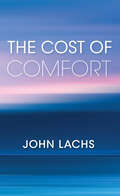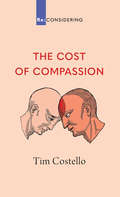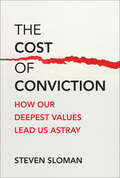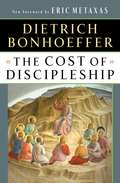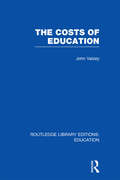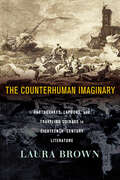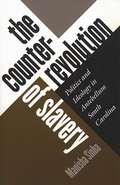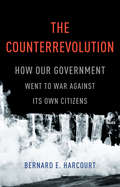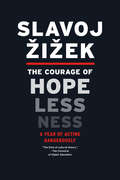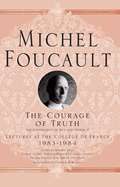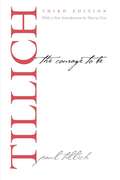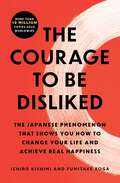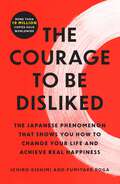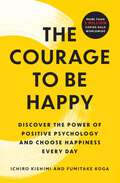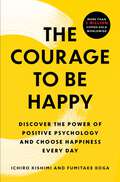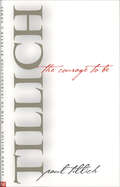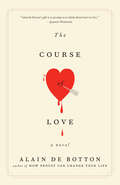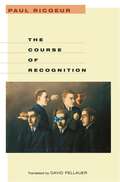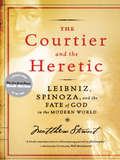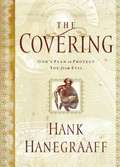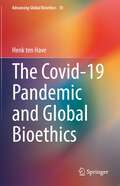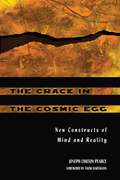- Table View
- List View
The Cost of Comfort (American Philosophy)
by John LachsWhy do we feel empty when our lives seem so full? A philosopher&’s &“clear, engaging reflection&” on the psychic risks of today&’s world (John T. Lysaker, author of After Emerson). While comfort has not always reached everyone evenly, most of us who live in the United States today reap the benefits of modern life. We live longer, we eat better food, we have access to good medical care, and we can stay in touch with loved ones who are far away. Yet, as philosopher John Lachs observes, these comfortable lives come at a cost: our increasing unhappiness. Irresponsible behavior, including by those in positions of power in governments and corporations, only increases and multiplies feelings of bitterness and disaffection. In this book, Lachs argues that this dizzyingly complex world often inspires isolation, and that deeper engagement with it is required in order to dispel our growing psychic distance. Lachs advocates for mediation and champions education, advertising, openness, and transparency to help individuals understand the roles they play in society and to nullify claims to blamelessness. Lachs suggests new rules for responsibility and argues that examining and understanding the consequences of one&’s actions is imperative to overcoming the ills and problems of the modern world—and to find the fulfillment we seek. &“A very clear, engaging reflection on a genuine contemporary issue: deep feelings of disengagement and bewilderment about how to live responsibly in an almost overwhelmingly complex world.&” —John T. Lysaker, author of After Emerson
The Cost of Compassion (Re: CONSIDERING)
by Tim CostelloRe:CONSIDERING invites you to look at what’s familiar from an unfamiliar angle. To consider how we consider things – and how to do it better.Who’s in favour of compassion?Pretty much everybody, actually. Left or right, religious or not, nobody seems to have a bad word to say about compassion.So why do we have so much trouble addressing the conflict, inequality, and suffering in our world?Ranging from the streets of St Kilda to the slums of Delhi, from Plato to Nietzsche, the Dalai Lama to Peter Singer, and from Seinfeld to the Good Samaritan, Tim Costello appeals to our common humanity – and takes an unflinching look at how costly compassion can be.
The Cost of Conviction: How Our Deepest Values Lead Us Astray
by Steven SlomanA timely and important perspective on how people frame decisions and how relying on sacred values unwittingly leads to social polarization.When you are faced with a decision, do you consider the best outcome, or do you consider your deepest values about which actions are appropriate? The Cost of Conviction contrasts these two primary strategies for making decisions: consequentialism or prioritizing one&’s sacred values. Steven Sloman argues that, while both modes of decision making are necessary tools for a good decision maker, people err by deploying sacred values more often than they should, especially when it comes to sociopolitical issues. As a result, we oversimplify, grow disgusted and angry, and act in ways that contribute to social polarization. In this book, Sloman provides a new understanding of today&’s societal ills and grounds that understanding in science.Drawing on historical and current examples of the two decision-making strategies in action, the author provides a thorough overview of the psychology of decision making, including work on judgment, conscious and unconscious decision-making processes, the roles of emotion, and even an analysis of habit and addiction. With its unique emphasis on sacred values, The Cost of Conviction is an eye-opening must-read for all decision makers, especially those who wish to understand judgment, social decision making, and leadership.
The Cost of Discipleship (Shepherd's Notes Ser.)
by Dietrich BonhoefferOne of the most important theologians of the twentieth century illuminates the relationship between ourselves and the teachings of Jesus in this classic text on ethics, humanism, and civic duty.What can the call to discipleship, the adherence to the word of Jesus, mean today to the businessman, the soldier, the laborer, or the aristocrat? What did Jesus mean to say to us? What is his will for us today? Drawing on the Sermon on the Mount, Dietrich Bonhoeffer answers these timeless questions by providing a seminal reading of the dichotomy between "cheap grace" and "costly grace." "Cheap grace," Bonhoeffer wrote, "is the grace we bestow on ourselves...grace without discipleship....Costly grace is the gospel which must be sought again and again, the girl which must be asked for, the door at which a man must know....It is costly because it costs a man his life, and it is grace because it gives a man the only true life." The Cost of Discipleship is a compelling statement of the demands of sacrifice and ethical consistency from a man whose life and thought were exemplary articulations of a new type of leadership inspired by the Gospel, and imbued with the spirit of Christian humanism and a creative sense of civic duty.
The Costs and Benefits of Animal Experiments
by Andrew KnightA comprehensive review of recent scientific evidence examining the contributions of animal experimentation to human healthcare. The book also explores toxicity prediction, animal use during life and health sciences education, impacts on student attitudes toward animals, and the extent to which animals suffer in laboratories.
The Costs of Education (Routledge Library Editions: Education)
by John VaizeyThis is the first book which authoritatively reviews the UK expenditure on education from 1920 – 1955, both by local authorities and private schools. The book takes the main elements of education in turn and discusses them in detail. There are original studies of local authority finance, of teachers’ pay and of the economics of private education. It examines educational spending by social class and compares the growth of educational services in England and Wales, Scotland and Northern Ireland.
The Counterhuman Imaginary: Earthquakes, Lapdogs, and Traveling Coinage in Eighteenth-Century Literature
by Laura BrownThe Counterhuman Imaginary proposes that alongside the historical, social, and institutional structures of human reality that seem to be the sole subject of the literary text, an other-than-human world is everywhere in evidence. Laura Brown finds that within eighteenth-century British literature, the human cultural imaginary can be seen, equally, as a counterhuman imaginary—an alternative realm whose scope and terms exceed human understanding or order.Through close readings of works by Daniel Defoe, Jonathan Swift, and Alexander Pope, along with lapdog lyrics, circulation narratives that give agency to inanimate objects like coins and carriages, and poetry about the Lisbon earthquake of 1755, Brown traces the ways presence and power of the nonhuman—weather, natural disasters, animals, even the concept of love—not only influence human creativity, subjectivity, and history but are inseparable from them. Traversing literary theory, animal studies, new materialism, ecocriticism, and affect theory, The Counterhuman Imaginary offers an original repudiation of the centrality of the human to advance an integrative new methodology for reading chaos, fluidity, force, and impossibility in literary culture.
The Counterrevolution of Slavery
by Manisha SinhaIn this comprehensive analysis of politics and ideology in antebellum South Carolina, Manisha Sinha offers a provocative new look at the roots of southern separatism and the causes of the Civil War. Challenging works that portray secession as a fight for white liberty, she argues instead that it was a conservative, antidemocratic movement to protect and perpetuate racial slavery.Sinha discusses some of the major sectional crises of the antebellum era--including nullification, the conflict over the expansion of slavery into western territories, and secession--and offers an important reevaluation of the movement to reopen the African slave trade in the 1850s. In the process she reveals the central role played by South Carolina planter politicians in developing proslavery ideology and the use of states' rights and constitutional theory for the defense of slavery. Sinha's work underscores the necessity of integrating the history of slavery with the traditional narrative of southern politics. Only by taking into account the political importance of slavery, she insists, can we arrive at a complete understanding of southern politics and the enormity of the issues confronting both northerners and southerners on the eve of the Civil War.
The Counterrevolution: How Our Government Went To War Against Its Own Citizens
by Bernard E. HarcourtA distinguished political theorist sounds the alarm about the counterinsurgency strategies used to govern AmericansMilitarized police officers with tanks and drones. Pervasive government surveillance and profiling. Social media that distract and track us. All of these, contends Bernard E. Harcourt, are facets of a new and radical governing paradigm in the United States--one rooted in the modes of warfare originally developed to suppress anticolonial revolutions and, more recently, to prosecute the war on terror.The Counterrevolution is a penetrating and disturbing account of the rise of counterinsurgency, first as a military strategy but increasingly as a way of ruling ordinary Americans. Harcourt shows how counterinsurgency's principles--bulk intelligence collection, ruthless targeting of minorities, pacifying propaganda--have taken hold domestically despite the absence of any radical uprising. This counterrevolution against phantom enemies, he argues, is the tyranny of our age. Seeing it clearly is the first step to resisting it effectively.
The Courage of Hopelessness: Chronicles Of A Year Of Acting Dangerously
by Slavoj ZizekIn THE COURAGE OF HOPELESSNESS, maverick philosopher Slavoj Zizek returns to explore today's ideological, political and economic battles, and asks whether radical change is possible.In these troubled times, even the most pessimistic diagnosis of our future ends with an uplifting hint that things might not be as bad as all that, that there is light at the end of the tunnel. Yet, argues Slavoj Žižek, it is only when we have admitted to ourselves that our situation is completely hopeless - that the light at the end of the tunnel is in fact the headlight of a train - that fundamental change can be brought about.
The Courage of Truth (Michel Foucault, Lectures at the Collège de France)
by Michel Foucault Graham BurchellThe Courage of the Truth is the last course that Michel Foucault delivered at the College de France before his death in 1984. In this course, he continues the theme of the previous year's lectures in exploring the notion of "truth-telling" in politics to establish a number of ethically irreducible conditionsbased on courage and conviction.
The Courage to Be
by Paul TillichThe Courage to Be has become a classic of twentieth-century religious and philosophical thought. The great Christian existentialist thinker Paul Tillich describes the dilemma of modern man and points a way to the conquest of the problem of anxiety.
The Courage to Be Disliked: The Japanese Phenomenon That Shows You How to Change Your Life and Achieve Real Happiness
by Ichiro Kishimi Fumitake KogaThe Life-Changing Magic of Tidying Up for the mind, The Courage to Be Disliked is the Japanese phenomenon that shows you how to free yourself from the shackles of past experiences and others’ expectations to achieve real happiness.The Courage to Be Disliked, already an enormous bestseller in Asia with more than 3.5 million copies sold, demonstrates how to unlock the power within yourself to be the person you truly want to be. Using the theories of Alfred Adler, one of the three giants of twentieth century psychology, this book follows an illuminating conversation between a philosopher and a young man. The philosopher explains to his pupil how each of us is able to determine our own life, free from the shackles of past experiences, doubts, and the expectations of others. It’s a way of thinking that is deeply liberating, allowing us to develop the courage to change, and to ignore the limitations that we and those around us have placed on ourselves. The result is a book that is both highly accessible and profound in its importance. Millions have already read and benefitted from its wisdom. This is a truly special book in the vein of Marie Kondo’s The Life-Changing Magic of Tidying Up but for the mind. Those ready to embrace the insights and liberation promised by The Courage to Be Disliked will come to a deeper understanding of themselves and others, and find the inspiration to take the reins of their own life.
The Courage to Be Disliked: The Japanese Phenomenon That Shows You How to Change Your Life and Achieve Real Happiness
by Ichiro Kishimi Fumitake KogaThe Life-Changing Magic of Tidying Up for the mind, The Courage to Be Disliked is the Japanese phenomenon that shows you how to free yourself from the shackles of past experiences and others&’ expectations to achieve real happiness.The Courage to Be Disliked, already an enormous bestseller in Asia with more than 3.5 million copies sold, demonstrates how to unlock the power within yourself to be the person you truly want to be. Using the theories of Alfred Adler, one of the three giants of twentieth century psychology, this book follows an illuminating conversation between a philosopher and a young man. The philosopher explains to his pupil how each of us is able to determine our own life, free from the shackles of past experiences, doubts, and the expectations of others. It&’s a way of thinking that is deeply liberating, allowing us to develop the courage to change, and to ignore the limitations that we and those around us have placed on ourselves. The result is a book that is both highly accessible and profound in its importance. Millions have already read and benefitted from its wisdom. This is a truly special book in the vein of Marie Kondo&’s The Life-Changing Magic of Tidying Up but for the mind. Those ready to embrace the insights and liberation promised by The Courage to Be Disliked will come to a deeper understanding of themselves and others, and find the inspiration to take the reins of their own life.
The Courage to Be Disliked: The Japanese Phenomenon That Shows You How to Change Your Life and Achieve Real Happiness
by Ichiro Kishimi Fumitake KogaAn international bestseller and TikTok sensation with more than 10 million copies sold worldwide, The Courage to Be Disliked is a transformative and practical guide to personal happiness and self-fulfillment.Now you can unlock your full potential and free yourself from the shackles of past traumas and societal expectations to find true personal happiness. Based on the theories of renowned psychologist Alfred Adler, this book guides you through the principles of self-forgiveness, self-care, and mind decluttering in a straightforward, easy-to-digest style that&’s accessible to all.The Courage to Be Disliked unfolds as a dialogue between a philosopher and a young man, who, over the course of five enriching conversations, realizes that each of us is in control of our life&’s direction, independent of past burdens and expectations of others. Wise, empowering, and profoundly liberating, this book is a life-changing experience that shows you a path to lasting happiness and how to finally be the person you truly want to be. Millions are already benefiting from its teachings—and you can be next.
The Courage to Be Happy: Discover the Power of Positive Psychology and Choose Happiness Every Day
by Ichiro Kishimi Fumitake KogaIn this follow-up to the international bestseller and TikTok sensation The Courage to Be Disliked, discover how to reconnect with your true self, experience true happiness, and live the life you want. What if one simple choice could unlock your destiny? Already a major international bestseller, this eye-opening and accessible follow-up to the &“compelling&” (Marc Andreessen) worldwide phenomenon The Courage to be Disliked shares the powerful teachings of Alfred Adler, one of the giants of 19th-century psychology, through another illuminating dialogue between the philosopher and the young man. Three years after their first conversation, the young man finds himself disillusioned and disappointed, convinced Adler&’s teachings only work in theory, not in practice. But through further discussions between the philosopher and the young man, they deepen their own understandings of Adler&’s powerful teachings, and learn the tools needed to apply Adler&’s teachings to the chaos of everyday life. To be read on its own or as a companion to the bestselling first book, The Courage to Be Happy reveals a bold new way of thinking and living, empowering you to let go of the shackles of past trauma and the expectations of others, and to use this freedom to create the life you truly desire. Plainspoken yet profoundly moving, reading The Courage to Be Happy will light a torch with the power to illuminate your life and brighten the world as we know it. Now you can discover the courage to choose happiness.
The Courage to Be Happy: The Japanese Phenomenon That Shows You That True Contentment Is Within Your Power
by Ichiro Kishimi Fumitake KogaIn this follow-up to the international phenomenon The Courage to Be Disliked, discover how to reconnect with your true self, experience true happiness, and live the life you want. What if one simple choice could unlock your destiny? Already a major Japanese bestseller, this eye-opening and accessible follow-up to the &“compelling&” (Marc Andreessen) international phenomenon The Courage to Be Disliked shares the powerful teachings of Alfred Adler, one of the giants of nineteenth-century psychology, through another illuminating dialogue between the philosopher and the young man. Three years after their first conversation, the young man finds himself disillusioned and disappointed, convinced Adler&’s teachings only work in theory, not in practice. But through further discussions, the philosopher and the young man deepen their own understandings of Adler&’s powerful teachings and learn the tools needed to apply them to the chaos of everyday life. To be read on its own or as a companion to the bestselling first book, The Courage to Be Happy reveals a bold new way of thinking and living, empowering you to let go of the shackles of past trauma and the expectations of others, and to use this freedom to create the life you truly desire. Plainspoken yet profoundly moving, The Courage to Be Happy will illuminate your life and brighten the world as we know it. Discover the courage to choose happiness.
The Courage to Be: Second Edition (The Terry Lectures Series)
by Paul TillichThe imminent philosopher and theologian examines religion in light of science and philosophy in modern society. Originally published more than fifty years ago, The Courage to Be has become a classic of twentieth-century religious and philosophical thought. The great Christian existentialist thinker Paul Tillich describes the dilemma of modern man and points a way to the conquest of the prob-lem of anxiety. This edition includes a new introduction by Harvey Cox that situates the book within the theological conversation into which it first appeared and conveys its continued rele-vance in the current century.&“The brilliance, the wealth of illustration, and the aptness of personal application…make the reading of these chapters an exciting experience.&”—W. Norman Pittenger, New York Times Book Review &“The essential character of courage, for Tillich, is &“in spite of.&” We must go on striving for freedom, justice, and our faith in spite of oppositions. In this age of late capitalism, globalization, and terrorism, we all need the virtue of courage as Harvey Cox admirably argues in the foreword.&”—Nimi Wariboko, Andover Newton Theological School, Newton Centre, MA "Tillich struggled with the existential question how we may overcome the demoralizing effects, on the individual and society, of our Age of Anxiety. In this, his most popular book, Tillich gives us his deeply thought answers, and Harvey Cox provides a helpful new introduction."—Gerald Holton, Harvard University
The Course of Love
by Alain De BottonIn Edinburgh, a couple, Rabih and Kirsten, fall in love. They get married, they have children -- but no relationship is as simple as "happily ever after." The Course of Love is a novel that explores what happens after the birth of love, what it takes to maintain love, and what happens to our original ideals under the pressures of an average existence. With philosophical insight and psychological acumen, Alain de Botton shows that our Romantic dreams may do us a grave disservice -- and explores what the alternatives might be. The conclusion, as the characters gradually discover, is that love is not "an enthusiasm," but rather a "skill" that must be slowly and often painfully learnt. This is a Romantic novel in the true sense, one interested in exploring how love can survive and thrive in the long term.
The Course of Recognition (Institute for Human Sciences Vienna lecture series)
by Paul RicoeurRecognition, though it figures profoundly in our understanding of objects and persons, identity and ideas, has never before been the subject of a single, sustained philosophical inquiry. This work, by one of contemporary philosophy’s most distinguished voices, pursues recognition through its various philosophical guises and meanings—and, through the “course of recognition,” seeks to develop nothing less than a proper hermeneutics of mutual recognition.Originally delivered as lectures at the Institute for the Human Sciences at Vienna, the essays collected here consider recognition in three of its forms. The first chapter, focusing on knowledge of objects, points to the role of recognition in modern epistemology; the second, concerned with what might be called the recognition of responsibility, traces the understanding of agency and moral responsibility from the ancients up to the present day; and the third takes up the problem of recognition and identity, which extends from Hegel’s discussion of the struggle for recognition through contemporary arguments about identity and multiculturalism. Throughout, Paul Ricoeur probes the significance of our capacity to recognize people and objects, and of self-recognition and self-identity in relation to the gift of mutual recognition. Drawing inspiration from such literary texts as the Odyssey and Oedipus at Colonus, and engaging some of the classic writings of the Continental philosophical tradition—by Kant, Hobbes, Hegel, Augustine, Locke, and Bergson—The Course of Recognition ranges over vast expanses of time and subject matter and in the process suggests a number of highly insightful ways of thinking through the major questions of modern philosophy.
The Courtier and the Heretic: Leibniz, Spinoza, and the Fate of God in the Modern World
by Matthew StewartStewart contrasts the thinking of Gottfried Wilhelm Leibniz (1646-1716), the toast of Paris and inventor of calculus, with that of Benedictus Spinoza (1632-77), who lived in The Hague as an outcast with a day job. In their ideas he finds the seeds both of modernity and of the conflicts that still rage through it. Annotation ©2006 Book News, Inc., Portland, OR
The Courtier and the Heretic: Leibniz, Spinoza, and the Fate of God in the Modern World
by Matthew Stewart"A colorful reinterpretation. . . . Stewart's wit and profluent prose make this book a fascinating read."--Publishers Weekly, starred review Philosophy in the late seventeenth century was a dangerous business. No careerist could afford to know the reclusive, controversial philosopher Baruch de Spinoza. Yet the wildly ambitious genius Gottfried Wilhelm Leibniz, who denounced Spinoza in public, became privately obsessed with Spinoza's ideas, wrote him clandestine letters, and ultimately met him in secret. "In refreshingly lucid terms" (Booklist) Matthew Stewart "rescues both men from a dusty academic shelf, bringing them to life as enlightened humans" (Library Journal) central to the religious, political, and personal battles that gave birth to the modern age. Both men put their faith in the guidance of reason, but one spent his life defending a God he may not have believed in, while the other believed in a God who did not need his defense. Ultimately, the two thinkers represent radically different approaches to the challenges of the modern era. They stand for a choice that we all must make.
The Covering
by Hank HanegraaffIn a world where evil seems to lurk around every corner and our thoughts turn to worry about our safety and security, the armor of God is our Father's protection in the fight against evils of our temporary home. Best-selling author Hank Hanegraaff describes God's protective covering over his children by dissecting Paul's words in Ephesians 6: 10-18 commanding us to put on the armor of God and "take our stand against the devil's schemes." Hanegraaff moves through the passage, phrase by phrase, defining God's armor, explaining what it means to embrace God's covering, and the practical ways God delivers us from evil.
The Covid-19 Pandemic and Global Bioethics (Advancing Global Bioethics #18)
by Henk ten HaveThis book demonstrates that the COVID 19 pandemic asks for a a global approach to bioethics. it describes how the pandemic affects the experience of being in a world that is intrinsically characterized by global connectivity. It demonstrates that a moral vision is necessary to articulate this experience of connectedness. Subsequently, a perspective of global bioethics is introduced, which provides a broader framework than mainstream bioethics, since it highlights the significance of both vulnerability and solidarity. Through a unique global perspective the book addresses the moral challenges of the pandemic, and places the confrontation with death, disease and disability within a wider framework of ethical concerns. This book is of important in the public debate on infectious diseases, and of relevance to health professionals, global health educators, public health experts,as well as policy makers.
The Crack in the Cosmic Egg: New Constructs of Mind and Reality
by Thom Hartmann Joseph Chilton PearceThe classic work that shaped the thought of a generation with its powerful insights into the true nature of mind and reality. • Defines culture as a "cosmic egg" structured by the mind's drive for logical ordering of its universe. • Provides techniques allowing individuals to break through the vicious circle of logic-based systems to attain expanded ways of creative living and learning. The sum total of our notions of what the world is--and what we perceive its full potential to be--form a shell of rational thought in which we reside. This logical universe creates a vicious circle of reasoning that robs our minds of power and prevents us from reaching our true potential. To step beyond that circle requires a centering and focus that today's society assaults on every level. Through the insights of Teilhard, Tillich, Jung, Jesus, Carlos Castaneda, and others, Joseph Chilton Pearce provides a mode of thinking through which imagination can escape the mundane shell of current construct reality and leap into a new phase of human evolution. This enormously popular New Age classic is finally available again to challenge the assumptions of a new generation of readers and help them develop their potential through new creative modes of thinking. With a masterful synthesis of recent discoveries in physics, biology, and psychology, Pearce reveals the extraordinary relationship of mind and reality and nature's blueprint for a self-transcending humanity.
